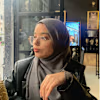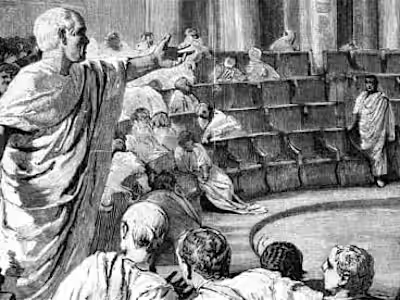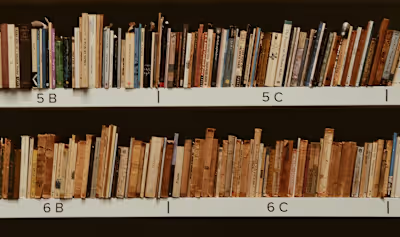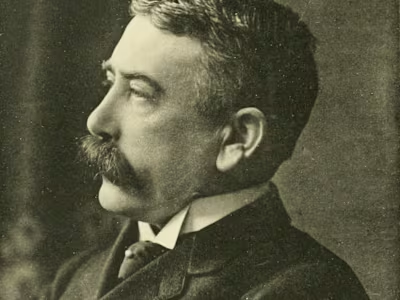Language, Discourse, and the Construction of Meaning
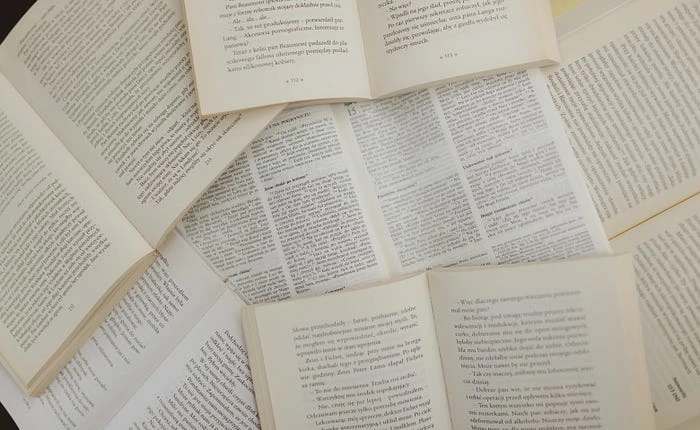
Having been revolutionized by Michel Foucault as a part of his analysis and revaluation of the changing nature of the episteme, discourse came to represent different things for different fields of studies. Foucault defines discourse less as a concrete phenomenon and more as a fluid medium of power. In The Archaeology of Knowledge he dissects his understanding and use of the term ‘discourse’ as being a combination of three distinct approaches. Stating that he treats discourse “sometimes as the general domain of all statements, sometimes as an individualizable group of statements, and sometimes as a regulated practice that accounts for a number of statements’’ (80). Foucault’s definition encompasses the use of discourse as general statements, as specific and regulated discursive structures, and finally as the overall structures that allow for the production of different discourses. His account of discourse is particularly helpful, within the discussion of how meaning is constructed in connection to language, because it allows us to analyze everything upwards of utterances as historical and cultural productions.
Foucault dedicated a number of his works to the study of the manner in which systems of knowledge or epistemes change over time, and the effects that they have on various groups of individuals. He was able to do this by employing what he refers to as the ‘archaeological method,’ which essentially enables him to study any particular period of history based on the dominant discursive structures present (Gutting and Oksala). By examining these structures he was able to analyze the different ways that societies understood madness, for example, throughout different historical periods. Thus, he was ultimately able to trace how meaning alters depending on the prominent discourses that are in motion. There was never one set estimation of madness, it was looked at both as an illness or as a source of divinity depending on the timeframe. Accordingly, meaning is greatly affected by the dominant discursive structures at play in any society. It is through them that individuals come to understand mad people as sick people or as divine or as anything in between.
While it is true that meaning is influenced by whatever dominant ideologies are present, Foucault did not adhere to the once popular Marxist dogma regarding the nature of power. Power is a crucial element in any discussion on discourse, one that cannot be ignored because it single handedly affects the way all discourses are constructed. Sara Mills, a published author and academic, efficiently illustrates the core discrepancies between Foucault’s conception of power and that of Marxist theory. In her book Discourse, she writes:
Foucault has been instrumental in the rethinking of models of power; rather than simply assuming, as many liberal humanists have, that power is a possession… or that power is a violation of someone’s rights… or, as Marxist theorists have, that power relations are determined by economic relations, Foucault has attempted to come to terms with the complexity of the range of practices which can be summed up under the term power. (19)
Mills highlights Foucault’s role in revolutionizing the notion of power and giving it new definitions. Unlike Marxist theory, he did not consider power to be an exclusive possession in the hands of the elite and wealthy. On the contrary, to Foucault “power is everywhere.” In his theory he identifies power as being scattered amongst all kinds of social cl assess and different individuals alike. Based on this, power is not in one place nor does it belong in the hands of the minority. Instead, Foucault points out the various ways in which power can be negotiated or even undermined by the supposedly ‘less powerful.’
Foucault famously declares, in the first volume of The history of sexuality, “where there is power, there is resistance.” His view of power moves beyond a simple assessment of power as a form of repression exercised on the powerless. He believes that individuals own the agency to contest, negotiate, or even resist power. As a result, Foucault proves that the existence of an all-powerful individual, or even class of individuals, is nothing but a myth. Power relationships are always negotiated and the end result is rarely as clear-cut as Marxist theory would have us believe. Sara Mills provides an example using boss-secretary dynamics as one of the various ways where power is dispersed and contested. As she states:
those who are not in economically powerful positions, may nevertheless manage to negotiate for themselves fairly powerful positions in the hierarchy. Furthermore, those who are in powerful positions may have to be careful how they negotiate the enactment of their power, and may have to temper the types of direct commands that they give. (40)
Mills uses a clear example of a boss’ authority over his secretary to show that even in that scenario, power is never exclusive. A boss does not have complete control over his employees, and a secretary is not as powerless as one might assume from her job position. Both need to negotiate for themselves positions of power depending on the hierarchy set in place. This example best encapsulates Foucault’s dynamic but intricate model of power, and allows us to note that power can find expression in all possible forms of behavior. Interestingly, Sara Mills also analyzes the function of language use in power relationships. As stated by her, language is an extremely valuable tool when it comes to negotiating power dynamics. In her book, she writes that people are able to accumulate power “through their use of seemingly powerful styles of language” (41). What this means is that by adopting a powerful style of language, one is able to sustain the illusion of power and thus negotiate for themselves a higher position within the hierarchy of power. This link between power and language takes us back to Barthes’ conception of the role of language in the creation of meaning as well as ideology.
In his analysis of power, Michel Foucault was also interested in the way discourses rise to a position of power. He addressed this process through his concept of Power/knowledge. Because Foucault’s work is largely concerned with the relation between social structures and institutions and the individual, it was of significance for him to trace the way that power operates between these two entities. In The History of Sexuality, Michel Foucault explains that power is artificially created and exercised by institutions, and that knowledge acts as an agency of power. In accordance with this, Foucault claims that “It is not possible for power to be exercised without knowledge; it is impossible for knowledge not to engender power.” Thus, using his concept of Power/Knowledge, he wanted to demonstrate that power and knowledge are intimately connected. That, together, power and knowledge establish what people perceive as the norm and their own understanding of truth and social reality.
Foucault considers discourse to be a medium of power in of itself. After all, discourse essentially constructs society’s rhetorical codes and defines what people can and cannot say within their community. Discourse, then, constrains our perceptions and views. Something that leads to the natural conclusion that our understanding of the world is absolutely not a pure reflection of reality, but a mere creation of discourse. However, by simultaneously identifying the possibility of resistance, Foucault reveals that meaning is not entirely created by society alone. Individuals are a crucial element of the construction of meaning and their agency cannot be undermined. By foregrounding the possibility of resistance and the ability to negotiate and contest within power relationships, Foucault suggests that meaning is also shaped by individual participation and interaction within communities and overall social structures. This possibility of resistance, while not originally a matter of focus in Foucault’s own theory due to his preference in emphasizing the workings of discursive structures, proved to be critically significant in fields such as Postcolonialism and Feminism. Both of which utilized this concept of resistance within power relationships to forge new identities and modes of opposition for the so-called ‘oppressed.’
Whether we talk about the emergence of the art of Rhetoric, the discoveries in the field of semiotics or Foucault’s concept of discourse, it becomes clear that the construction of meaning is a very intricate matter. In all three fields we can see that Language acts as an agency for the establishment of meaning, but it is still up to collective social structures to “agree on, contest, or negotiate norms and values about how language ought to be used and what things ought to mean” (Paul Gee 5). Foucault retains that our sense of reality as individuals is seriously affected by the workings of discourse, and that we are limited both in terms of perception and behavior by these discursive structures. Thus, discourse affects and in a way defines what we constitute to be meaningful as well as the way we view and interact with our social reality. Meaning is created, then, as a result of the limitations brought upon by various discursive structures, which ironically lead to the regulation of our understanding of the real.
Works Cited Page
Foucault, Michel. Archaeology of Knowledge. Trans. Sheridan Smith, A. M. London: Routledge, 1992. Print.
— -, The History of Sexuality: Volume 1. Trans. Robert Hurley. New York: Pantheon Books, 1986. Print.
Gee, James P, and Michael Handford. The Routledge Handbook of Discourse Analysis. London: Routledge, 2014. Print.
Gutting, Gary and Oksala, Johanna, “Michel Foucault”, The Stanford Encyclopedia of Philosophy (Spring 2019 Edition), Edward N. Zalta (ed.), forthcoming URL = <https://plato.stanford.edu/archives/spr2019/entries/foucault/>.
Herrick, James A. “The Origins and Early History of Rhetoric.” The History and Theory of Rhetoric: An Introduction. New York, NY : Routledge, 2018. Print.
Lemke, Jay L. “Multimedia and Discourse Analysis.” The Routledge Handbook of Discourse Analysis. London: Routledge, 2014. Print.
Mills, Sara. Discourse. 2nd ed., London: Routledge, 2009. Print.
Silverman, Kaja. “From Sign to Subject, A Short History.” The Subject of Semiotics. New York: Oxford Univ. Press, 1994. Print.
Like this project
Posted Jun 25, 2023
Having been revolutionized by Michel Foucault as a part of his analysis and revaluation of the changing nature of the episteme, discourse came to represent dif…
Likes
0
Views
17
